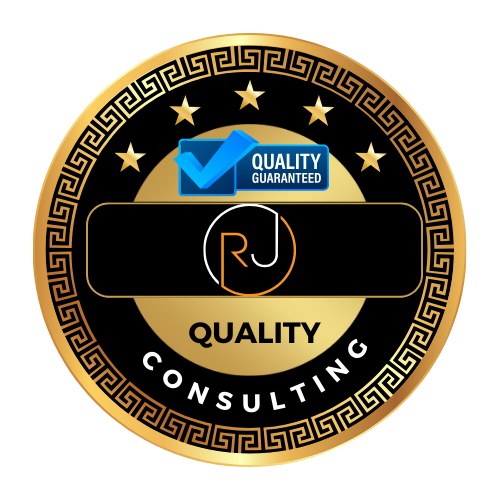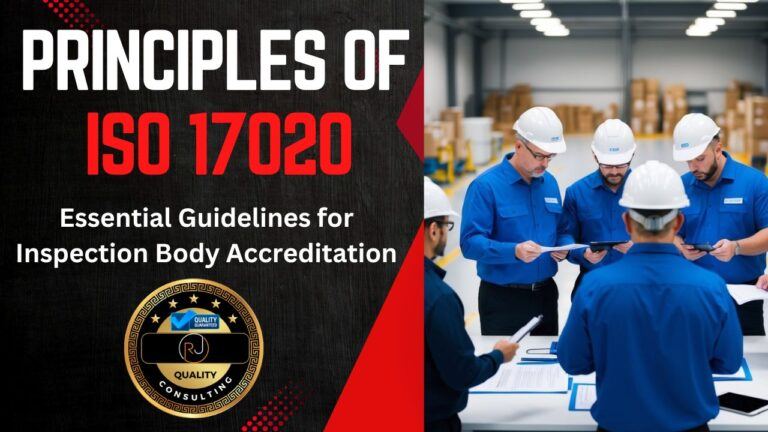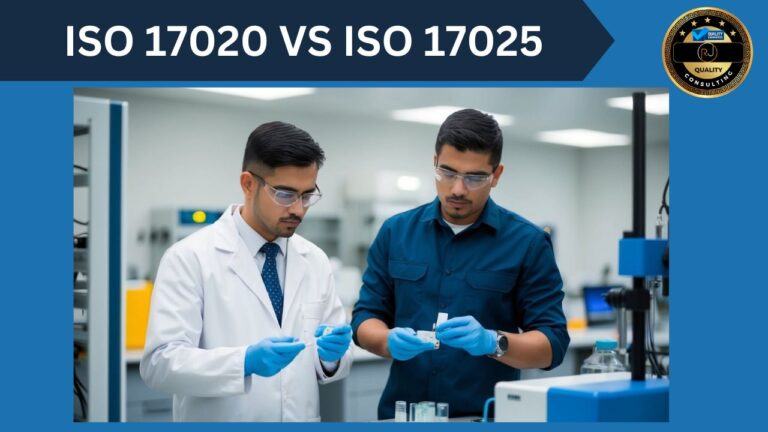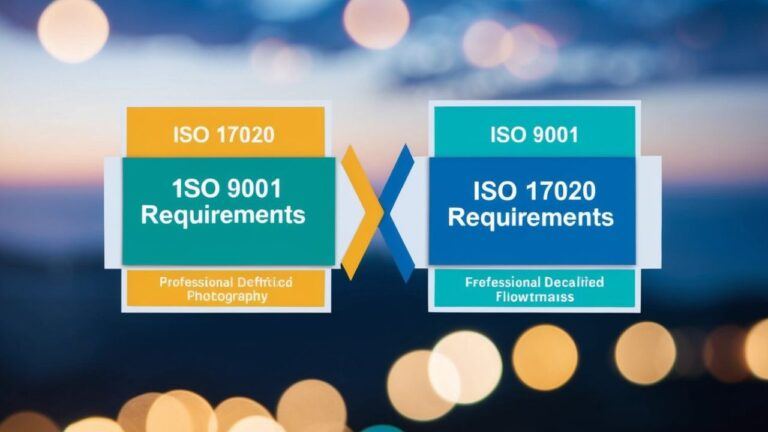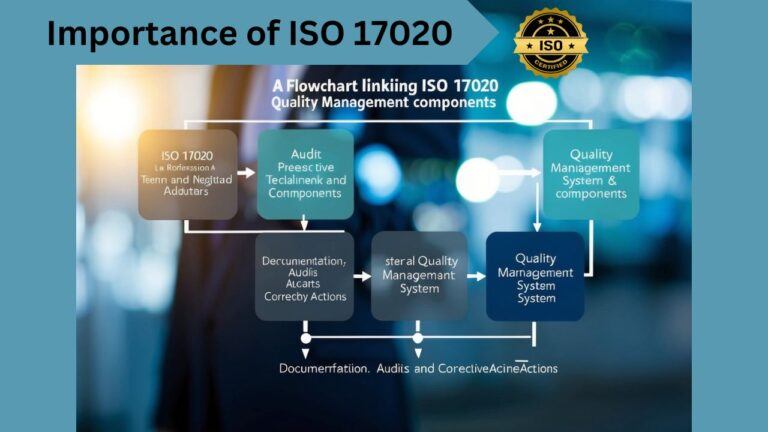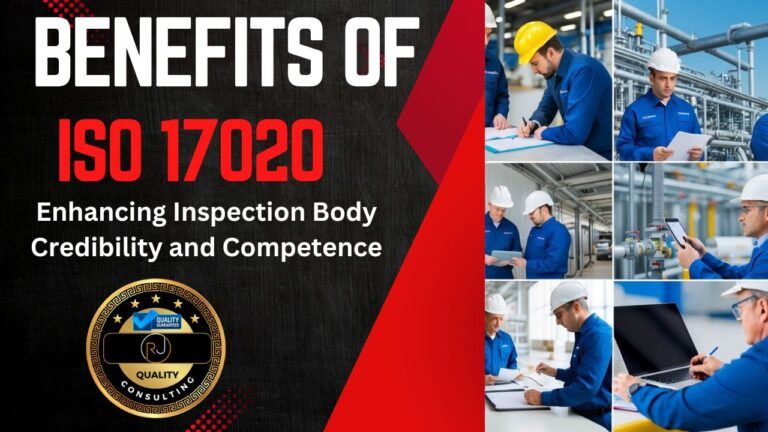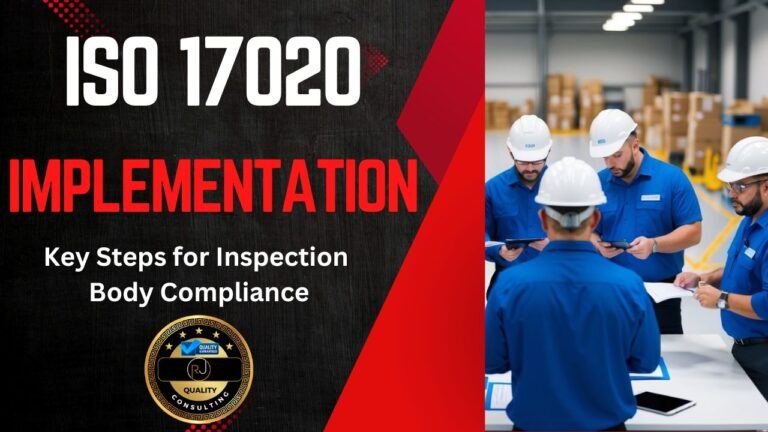What is ISO 17020? Understanding the Standard for Inspection Bodies
So, what is ISO 17020? ISO 17020 is a key standard for organizations that perform inspections. It sets rules for how inspection bodies should operate. These rules make sure inspections are fair, consistent, and reliable. In this post we will cover all of the details about ISO 17020 and why it is so important.

The standard applies to all types of inspection bodies. This includes those that work for companies, clients, or government agencies. It covers inspections at any stage of a process.
ISO 17020 helps inspection bodies prove they are good at what they do. It also shows they can be trusted. This can make it easier for them to work in different countries and markets.
Key Takeaways
- ISO 17020 ensures inspection bodies operate fairly and consistently
- The standard applies to various types of inspection bodies and stages
- Compliance with ISO 17020 can boost an inspection body’s credibility and market access
What Is ISO 17020?
ISO 17020 sets standards for inspection bodies to ensure quality and consistency. It covers everything from procedures to reporting of inspection results.
Introduction To What is ISO 17020 And Its Purpose
ISO 17020 is an international standard for inspection bodies. It defines requirements for competence, impartiality, and consistency in inspection activities. The standard applies to various types of inspection bodies and stages of inspection.
ISO 17020 aims to:
- Ensure reliable inspections
- Promote consistency across inspection bodies
- Build trust in inspection results
By following ISO 17020, inspection bodies can demonstrate their competence and reliability. This helps them gain recognition and access to global markets.
History And Development Of ISO 17020
ISO 17020 was first published in 1998. The International Organization for Standardization (ISO) and the International Electrotechnical Commission (IEC) jointly developed it.
Key milestones:
- 1998: First edition released
- 2012: Major revision published
The 2012 update improved clarity and aligned ISO 17020 with other conformity assessment standards. It addressed new industry needs and technological advances.
ISO regularly reviews and updates the standard to keep it relevant. This ensures ISO 17020 continues to meet the evolving needs of inspection bodies and their clients.
Scope And Applicability Of ISO 17020
ISO 17020 applies to all types of inspection bodies, regardless of size or sector. It covers a wide range of inspection activities, including:
- Product inspections
- Process evaluations
- Service quality checks
- Safety assessments
The standard is flexible and can be used in various industries. It’s applicable to both public and private sector inspections.
ISO 17020 defines three types of inspection bodies:
- Type A: Independent third-party
- Type B: Separate part of a larger organization
- Type C: Part of an organization that provides other services
Each type has specific requirements to ensure impartiality and competence in inspections.
Importance Of ISO 17020

The importance of ISO 17020 cannot be understated. It plays a crucial role in maintaining high standards for inspection bodies. It ensures consistency, builds trust, and helps organizations meet regulatory requirements.
Ensuring Consistency In Inspection Bodies
ISO 17020 sets clear guidelines for inspection bodies to follow. This leads to more uniform practices across different organizations. You can expect similar quality and methods whether you’re dealing with a small local inspector or a large international firm.
The standard covers everything from staff qualifications to equipment calibration. It makes sure inspectors use up-to-date techniques and follow proper procedures. This consistency is key for reliable results.
ISO 17020 also requires regular internal audits and management reviews. These checks help catch and fix any issues before they become big problems.
Role In Enhancing Credibility And Trust
When an inspection body is ISO 17020 certified, it shows they meet international standards. This certification acts like a seal of approval. It tells clients and partners they can trust the inspection results.
Certified bodies must prove their impartiality and integrity. They can’t let outside pressures affect their judgments. This builds confidence in their findings.
The standard also requires clear communication. Inspection reports must be easy to understand and accurate. This transparency helps build long-term trust with clients.
Compliance With Regulatory Requirements
Many industries have strict rules about inspections. ISO 17020 helps inspection bodies meet these legal demands. It covers areas like confidentiality, safety, and environmental concerns.
The standard keeps inspection bodies up-to-date with changing regulations. It requires them to stay informed about relevant laws and industry norms.
By following ISO 17020, inspection bodies show they’re serious about compliance. This can make it easier to work in different countries or industries. It also helps avoid legal issues that could arise from poor inspection practices.
Benefits of ISO 17020

ISO 17020 accreditation offers inspection bodies many advantages. It boosts credibility, improves operations, and increases global competitiveness.
Improved Operational Efficiency
ISO 17020 helps you streamline your inspection processes. You’ll set up a strong management system that covers all parts of your work. This system includes clear procedures for inspections, record-keeping, and equipment maintenance.
With these tools, you can:
- Find and fix problems faster
- Use resources better
- Cut down on mistakes and do-overs
Your staff will know exactly what to do and how to do it. This leads to smoother operations and less wasted time. You’ll also have ways to measure and improve your performance over time.
Higher Customer Satisfaction Through Reliable Inspections
When you follow ISO 17020, your customers can trust your results. The standard makes sure you:
- Use proper methods
- Keep your equipment in top shape
- Train your staff well
This means more accurate and consistent inspections. Your reports will be clear and complete. Clients will feel confident using your services again and again.
You’ll also have a system to handle complaints quickly. This shows customers you care about their needs and are always trying to get better.
Enhanced International Recognition And Competitiveness
ISO 17020 is known worldwide. When you get this accreditation, doors open up for you globally. You can:
- Work with international clients
- Bid on projects in other countries
- Partner with foreign businesses
Many industries and governments look for ISO 17020 accreditation. It shows you meet high standards that are the same everywhere. This gives you an edge over competitors who don’t have it.
You’ll be able to prove your skills to clients all over the world. Your reports will be accepted in many places, making it easier for your customers to do business globally.
Principles of ISO 17020

ISO 17020 outlines key principles for inspection bodies to ensure reliable and consistent results. These principles focus on maintaining independence, demonstrating competence, and following standardized procedures.
Impartiality and Independence
Inspection bodies must remain impartial and independent to provide trustworthy results. You’ll find three types of inspection bodies under ISO 17020:
- Type A: Fully independent third-party organizations
- Type B: Separate parts of larger organizations that inspect for their parent company
- Type C: In-house inspection departments
Each type has specific requirements to avoid conflicts of interest. Type A bodies have the strictest rules, while Type C have more flexibility. You must identify and manage any potential conflicts to maintain credibility.
Competence and Confidentiality
Your inspection body needs qualified personnel to carry out inspections. This means:
- Hiring staff with proper education and experience
- Providing ongoing training
- Regularly evaluating staff performance
You must also protect confidential information. This includes:
- Client data
- Inspection results
- Proprietary processes
Set up systems to safeguard this information from unauthorized access or disclosure.
Transparency and Adherence to Established Procedures
You need clear, documented procedures for all inspection activities. This ensures:
- Consistency across inspections
- Traceability of results
- Ability to review and improve processes
Be transparent about your methods. Clients should understand how you conduct inspections and reach conclusions. Follow your established procedures closely, but be ready to adapt them if needed to ensure accuracy and reliability.
ISO 17020 Vs ISO 9001

ISO 17020 and ISO 9001 are two important standards for quality management. They have different purposes and uses in organizations. In this section we will discuss ISO 17020 vs ISO 9001.
Key Differences Between ISO 17020 And ISO 9001
ISO 17020 focuses on inspection bodies. It sets rules for how they should work and stay unbiased. ISO 9001 is about quality management systems for any type of organization.
ISO 17020 is more specific. It’s for companies that do inspections for others. ISO 9001 is broader. It can be used by any company that wants to improve quality.
The main goal of ISO 17020 is to make sure inspections are done right. ISO 9001 aims to help organizations meet customer needs and get better over time.
Specific Use Cases And Applications
You might use ISO 17020 if you run a company that checks products or services for other businesses. For example, a firm that inspects buildings or tests food safety would use this standard.
ISO 9001 is good for almost any business. It can help you make better products, keep customers happy, and work more efficiently. A factory, a school, or a hospital could all use ISO 9001.
Some companies use both standards. They might use ISO 9001 for their overall quality system and ISO 17020 for their inspection work.
Advantages Of Each Standard
ISO 17020 helps you show that your inspections are trustworthy. It can make your business stand out from others in the inspection field. This standard also helps you stay organized and consistent in your work.
ISO 9001 can boost your company’s image. It shows customers you care about quality. This standard can also help you save money by making your processes more efficient.
Both standards can help you improve your work. They give you a framework to follow and ways to check if you’re doing a good job. Using these standards can lead to fewer mistakes and happier customers.
ISO 17020 Training And Certification

Getting proper training and certification is key for inspection bodies seeking ISO 17020 accreditation. It helps ensure you meet all requirements and maintain high standards.
Overview Of Training Programs Available
Many organizations offer ISO 17020 training programs. These range from short introductory courses to in-depth workshops. Some common options include:
- Online self-paced courses
- Live virtual training sessions
- In-person seminars and workshops
- On-site training at your facility
Programs typically cover ISO 17020 requirements, inspection processes, and quality management systems. You’ll learn about impartiality, confidentiality, and other key principles. Look for courses taught by experienced auditors and accreditation experts.
Steps To Achieve ISO 17020 Certification
Gaining ISO 17020 certification takes time and effort. Here are the main steps:
- Learn the standard – Study ISO 17020 requirements thoroughly
- Gap analysis – Compare your current practices to the standard
- ISO 17020 Implementation – Update processes and documents as needed
- Internal audit – Check your compliance through self-assessment
- Management review – Leadership evaluates the quality system
- Accreditation body audit – External experts assess your organization
- Address findings – Fix any issues identified in the audit
- Receive certification – Get your official ISO 17020 accreditation
The process usually takes 6-12 months. Working with a consultant can help streamline things.
Continuous Improvement And Maintenance Of Compliance
ISO 17020 certification isn’t a one-time event. You need ongoing efforts to stay compliant:
- Conduct regular internal audits
- Keep staff trained on the latest standards
- Review and update your quality manual yearly
- Monitor key performance indicators
- Hold management reviews to assess effectiveness
- Address any non-conformities quickly
Accreditation bodies will do periodic reassessments. Be ready to show how you’ve maintained and improved your inspection processes. Staying on top of changes to ISO 17020 is crucial. Join industry groups to keep up with new developments.
Conclusion
ISO 17020 sets the standard for inspection bodies worldwide. It ensures quality, impartiality, and competence in inspection services across industries.
Recap Of Key Points Discussed
ISO 17020 defines requirements for inspection bodies’ competence and impartiality. It covers management systems, personnel qualifications, and inspection processes. The standard applies to various sectors, from manufacturing to environmental services.
Key points include:
- Impartiality and independence requirements
- Strict personnel competence criteria
- Quality management system guidelines
- Detailed inspection methods and procedures
Accreditation to ISO 17020 boosts an organization’s credibility and reliability in the inspection field.
The Future Outlook Of ISO 17020 In Various Industries
ISO 17020 will likely grow in importance across industries. More sectors may adopt it as a benchmark for quality inspections.
In manufacturing, ISO 17020 could help ensure product safety and quality control. The construction industry might use it more for building inspections and safety checks.
Environmental services may rely on ISO 17020 for consistent pollution monitoring. The food industry could apply it to enhance food safety inspections.
As technology advances, ISO 17020 may adapt to include guidelines for digital inspection tools and methods.
Final Thoughts on what is ISO 17020 And Recommendations
ISO 17020 is a valuable tool for inspection bodies aiming for excellence. To make the most of it:
- Invest in staff training to meet competence requirements
- Regularly review and update your quality management system
- Stay informed about any updates or changes to the standard
Consider seeking accreditation if you haven’t already. It can open new business opportunities and boost your reputation.
Remember, ISO 17020 is not just a certificate – it’s a commitment to ongoing improvement and quality in inspection services.
Frequently Asked Questions
ISO 17020 certification involves several key aspects for inspection bodies. Here are answers to common questions about requirements, costs, and applications of this standard.
How does ISO 17020 apply to inspection bodies?
ISO 17020 sets rules for how inspection bodies should work. It covers things like being fair, having good systems, and doing inspections right. The standard makes sure inspections are done the same way every time.
What are the requirements for achieving ISO 17020 certification?
To get ISO 17020 certified, you need to show you follow the rules. This means having clear ways of working, trained staff, and good equipment. You also need to prove you’re not biased and keep good records.
What is the difference between ISO 17020 and ISO/IEC 17025?
ISO 17020 is for inspection bodies, while ISO/IEC 17025 is for testing and calibration labs. ISO 17020 focuses on how you do inspections, while ISO/IEC 17025 looks at how you run tests and measure things.
How much does it cost to get certified under ISO 17020?
The cost of ISO 17020 certification varies. It depends on how big your company is and what you do. You’ll need to pay for audits and maybe some help to get ready. It can cost from a few thousand to tens of thousands of dollars.
In what way does ISO 17020 relate to crime scene investigation?
ISO 17020 can apply to crime scene work. It helps make sure crime scene inspections are done right. This standard can help keep evidence safe and make sure reports are good.
What are the recent updates in the latest version of ISO 17020?
The latest version of ISO 17020, released in 2012, added more rules about being fair and not having conflicts. It also made the language clearer and easier to understand.
🕒 Book Your Free 45-Minute Consultation
Have questions about ISO/IEC 17025 or ISO 9001 implementation or accreditation? Schedule a free 45-minute consultation with me to discuss your Company or laboratory’s needs and how we can achieve compliance together.
Schedule Your Consultation